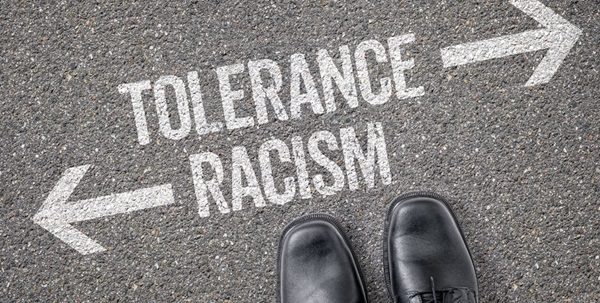
On November 8, the American electorate chose Donald J. Trump to be our next president, a candidate whose rhetoric recalled the coded and not so-coded racism of civil rights era politicians. The exemplar of white resistance to an end to Jim Crow segregation was George Wallace. Yet, he wasn’t always the poster child for bigotry. In 1958 he had the endorsement of the NAACP in the democratic primary for the Governor of Alabama. Yet he lost to John Patterson who was endorsed by the Ku Klux Klan. Those of us disappointed by Clinton’s loss would most likely have been disappointed by George Wallace’s loss as well. Yet here’s the lesson Wallace took away from that defeat:
After the election, aide Seymore Trammell recalled Wallace saying, “Seymore, you know why I lost that governor’s race? … I was outniggered by John Patterson. And I’ll tell you here and now, I will never be outniggered again.”
In the wake of his defeat, Wallace adopted a hard-line segregationist stance and used this stand to court the white vote in the next gubernatorial election in 1962. When a supporter asked why he started using racist messages, Wallace replied, “You know, I tried to talk about good roads and good schools and all these things that have been part of my career, and nobody listened. And then I began talking about niggers, and they stomped the floor.”
Echoing Wallace’s opportunistic turn toward racism, we see a similar cynical pivot by Trump. You may remember that in February Donald Trump was given multiple opportunities to disavow the support of white supremacist David Duke and other neo-Nazi groups. Pleading ignorance of Duke, he finally tweeted a terse statement:
“As I stated at the press conference on Friday regarding David Duke- I disavow.” However, in a striking parallel to the Wallace example, in 2000 Trump declined a presidential bid for the reform party saying, “the Reform Party now includes a Klansman, Mr. Duke, a neo-Nazi, Mr. (Pat) Buchanan, and a communist, Ms. (Lenora) Fulani. This is not company I wish to keep.” Yet when it opened up a populist path to the White House for him, Trump kept their company without hesitation.
Am Not! You’re the Racist!
Many of us are acutely sensitive to the blatant and veiled discourse that normalizes racism and all the other isms that dehumanize others. We often fail to understand how our friends, family and fellow citizens can support someone deploying such undeniably racist tactics. We accuse them of being as racist as their candidate while we take refuge on the moral high ground. But claiming not to understand is to dehumanize our friends, family and fellow citizens in ways that mirror what we are seeking to condemn.
I believe that Donald Trump is very sincere when he protests that he is not a racist. And his followers’ denials of their racism are just as sincere. Why? Because of two intertwined and deeply held convictions. The first is something we all hold dear which is our sense of ourselves as good people. No one self-identifies as wicked or racist! Those are accusations that are hurled at us from our enemies, not ways in which we characterize our own needs, wants or desires.
The second related belief is that the ends justify the means. In other words, because my needs, wants and desires are unquestionably good, any method I use to achieve them is also good. For example, Trump’s need to win – a good aim of a good person, as he sees it – allows him to employ racist rhetoric without any moral ambiguity whatsoever. Or the very legitimate need of some of his supporters for economic security justifies any means they may have to take, including supporting an opportunistic candidate playing to their worst instincts. Or the need of Clinton supporters to deny their own racism permits them to hurl accusations against Trump and his followers.
Discovering our Blind Spots Together
But here’s the rub: in order to preserve my sense of myself as a good person at the same time as I am behaving badly, I become blind and deaf to the suffering I may be causing others. It’s an unfortunate aspect of white racial superiority that we cannot see racism in ourselves. As I wrote earlier as part of our Election Interview Series, racism is a form of scapegoating and scapegoating has a tricky way of hiding in plain sight. While we easily recognize scapegoating (and racism) in others, it is extraordinarily difficult to spot it in ourselves. Because to have a scapegoat is not to know you have one. Which is to say that our scapegoats live in a blind spot in our self-awareness. We explain our behaviors by saying that we are defending our rights or way of life or protecting our families or their jobs against criminals and bad guys. To be a racist is not to know you are one.
I don’t know if Trump is actually a bigot or just playing a part. Either way he has fostered a normalization of hateful, racist behaviors that he must take responsibility for if he is serious about putting the rancor and divisions of the campaign behind us. Racism has real and devastating consequences for its victims who need and deserve better from the citizens of this nation. But Clinton supporters, who seek to stand with victims, and who have nurtured their moral superiority by calling Trump voters racist, would do well to dial it back. Very few of us are racist or bigoted on purpose. We are unconscious participants in a system of institutionalized racism that implicates us all and puts a stranglehold on the safety, security and identity of its victims.
If we seek to stand with victims of racism, to speak truth to power, and condemn racist rhetoric we must do so with humility. For if we believe that we are better than those we condemn, we have succeeded in demonizing them and mirroring their own inability to see the humanity of an entire group or category of people.
Brian McLaren offered this sage advice in our Election Series interview with him:
How do we love people, especially out enemies, while calling out injustice? … Some activism in the past has tended to demonize our opponents and ascribe the worst possible motives to their actions. What would happen if we did the opposite? If we ascribed the best motives to those we disagree with? We give them every benefit of the doubt?
That is the most important choice we now face as a nation: we can condemn one another or we can move forward with humility and respect. That last option was way down on the ballot, but it’s not too late to cast your vote for a real winner.
Image: Copyright: zerbor / 123RF Stock Photo











